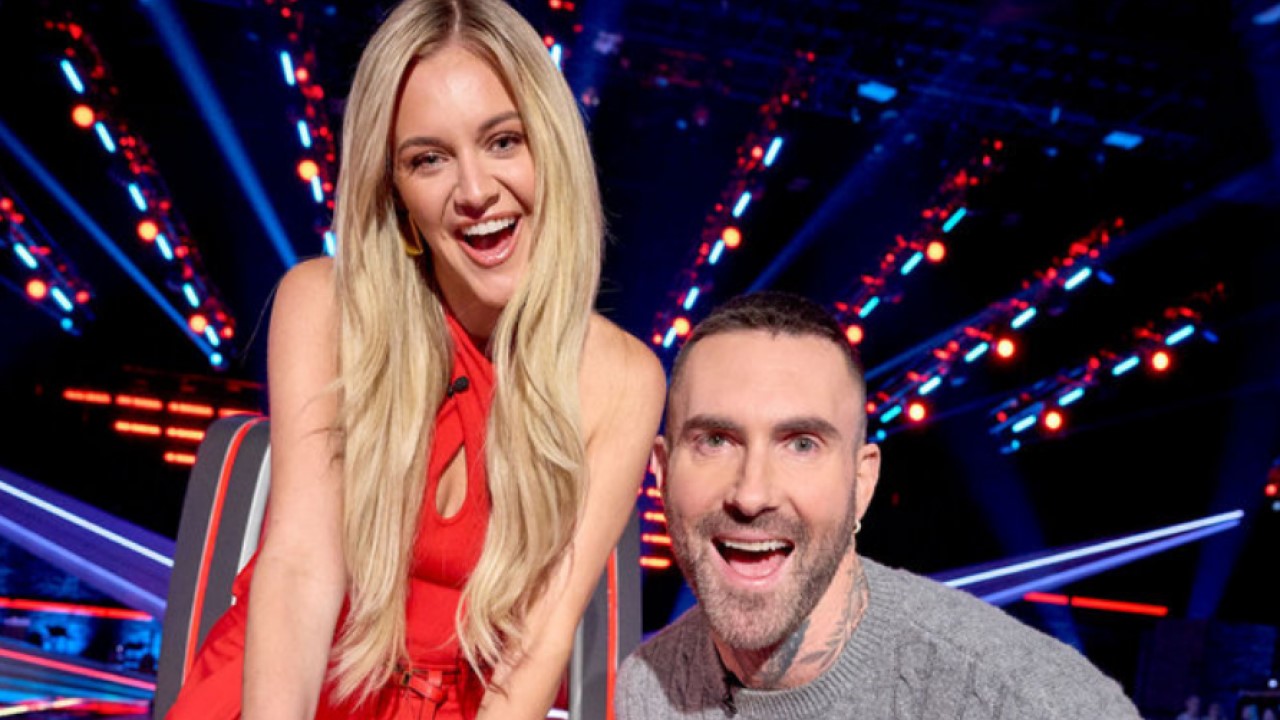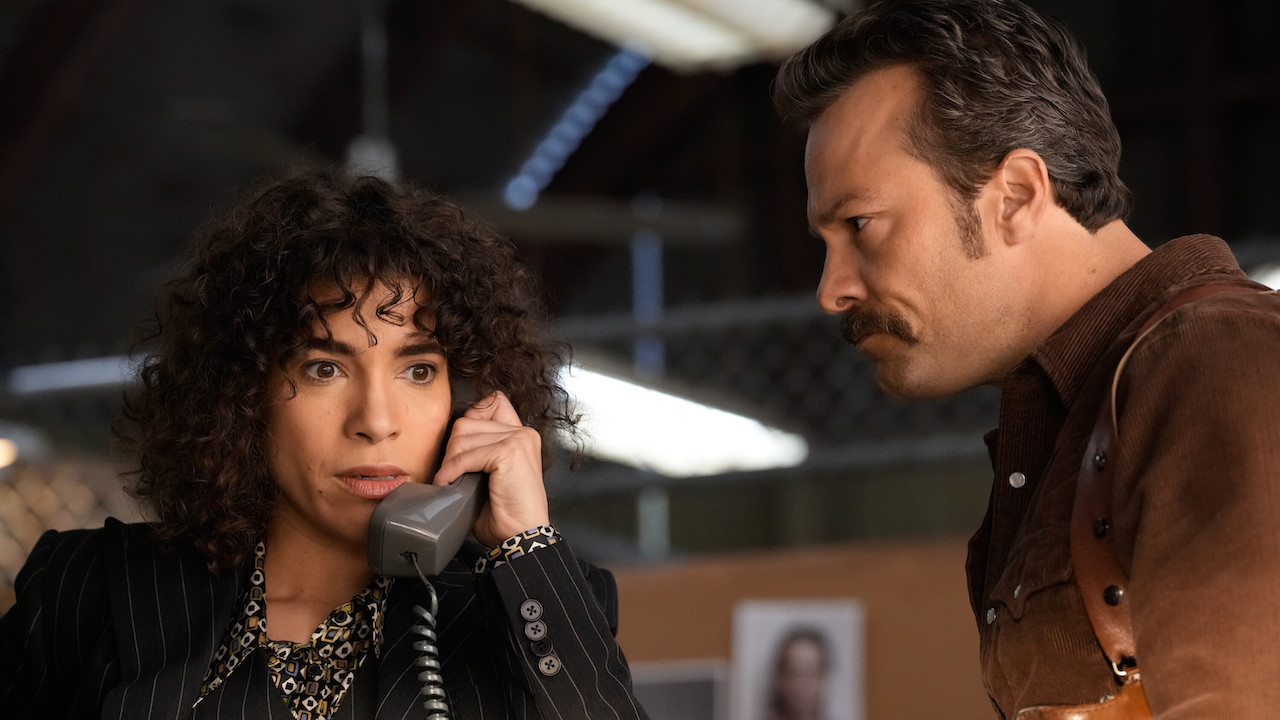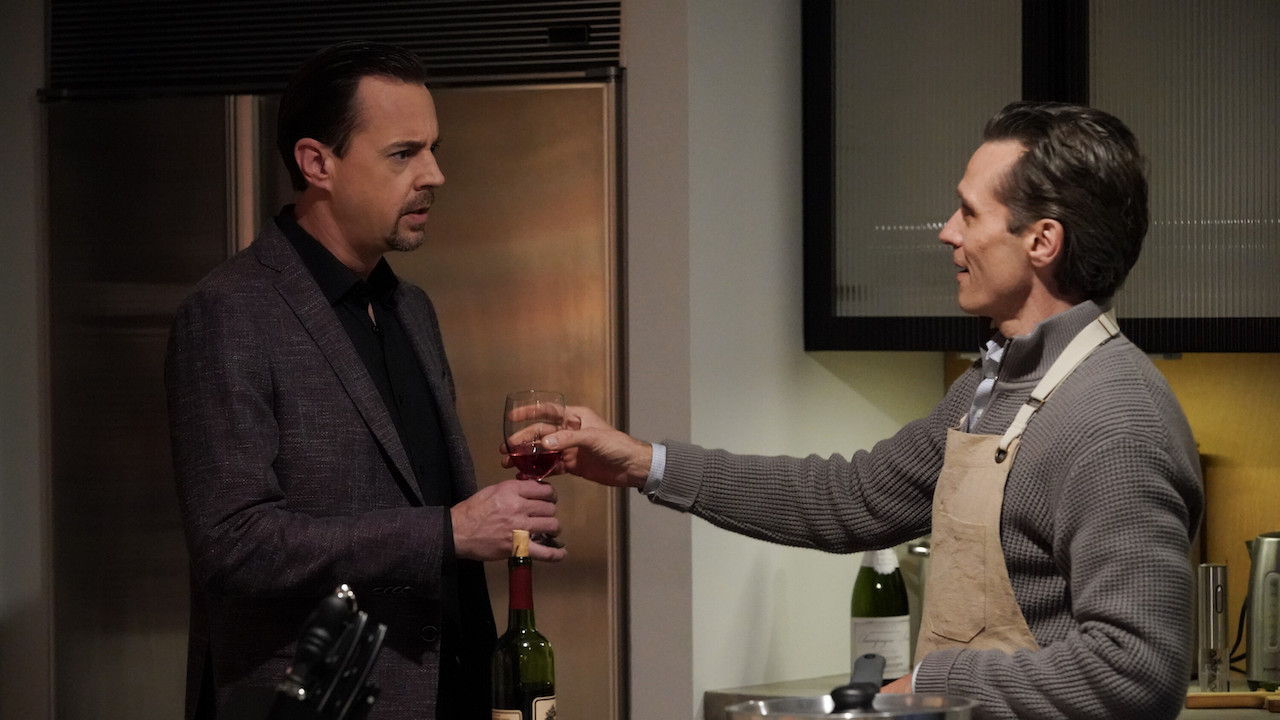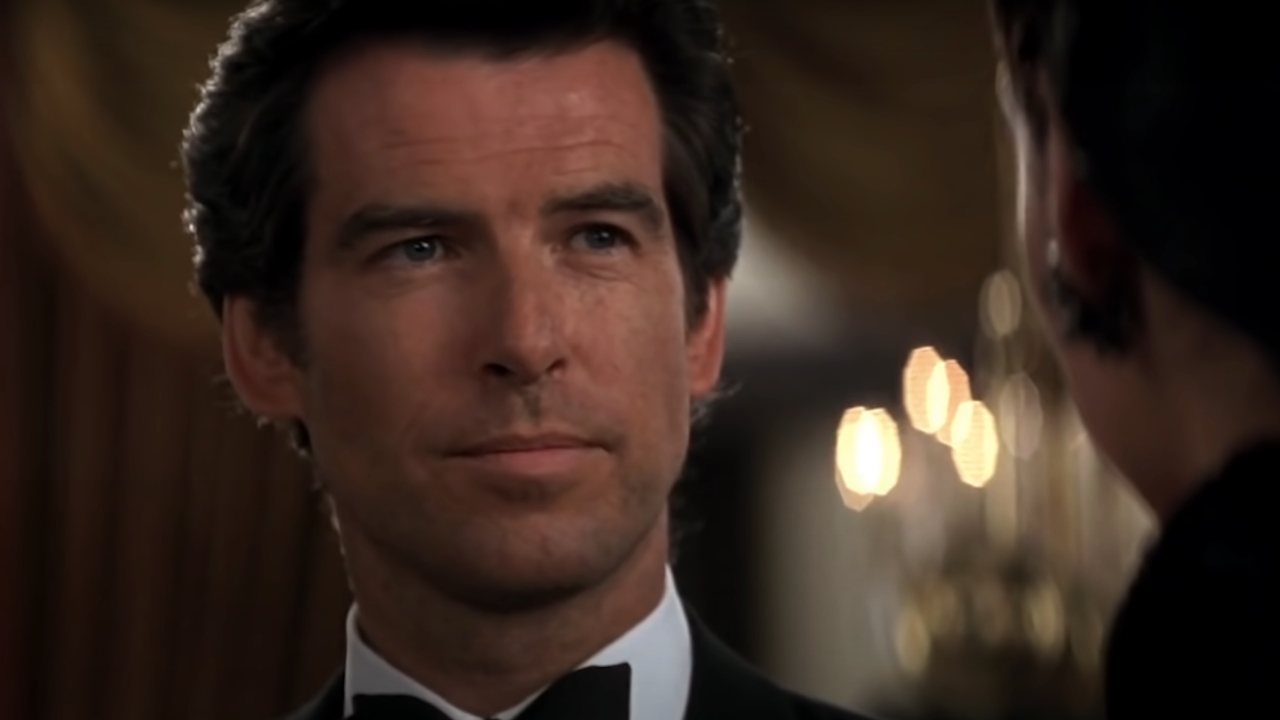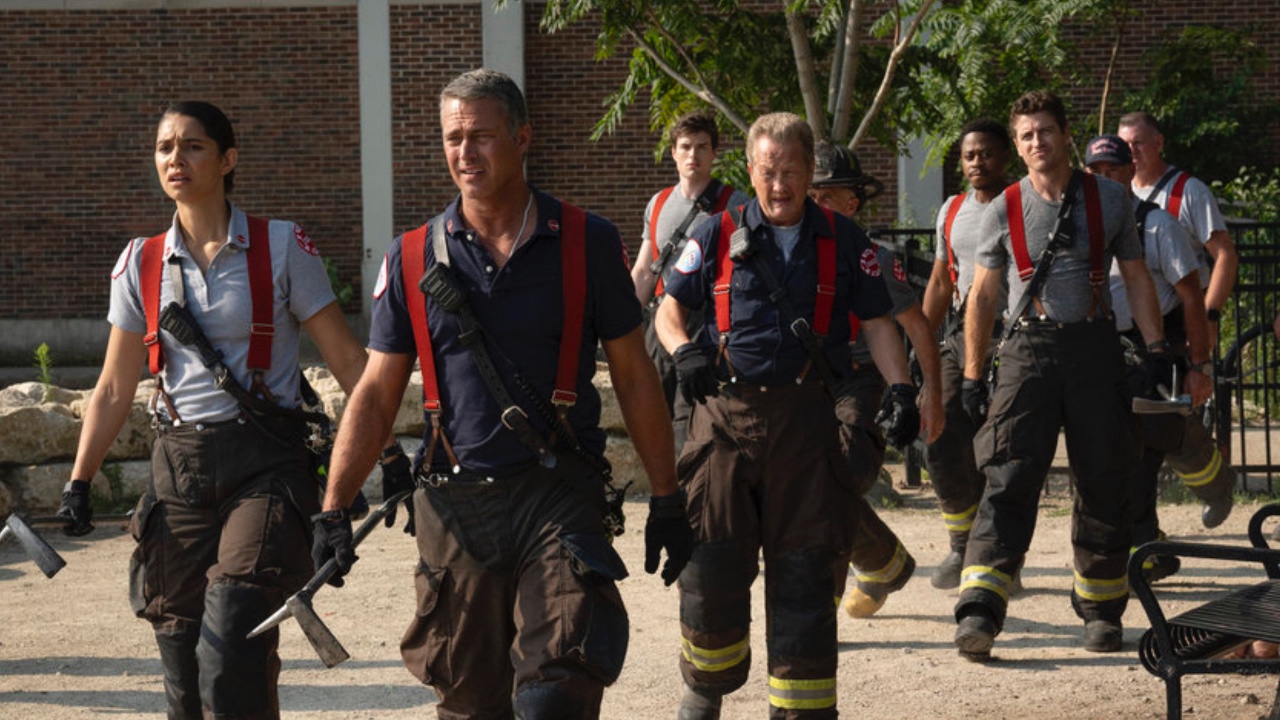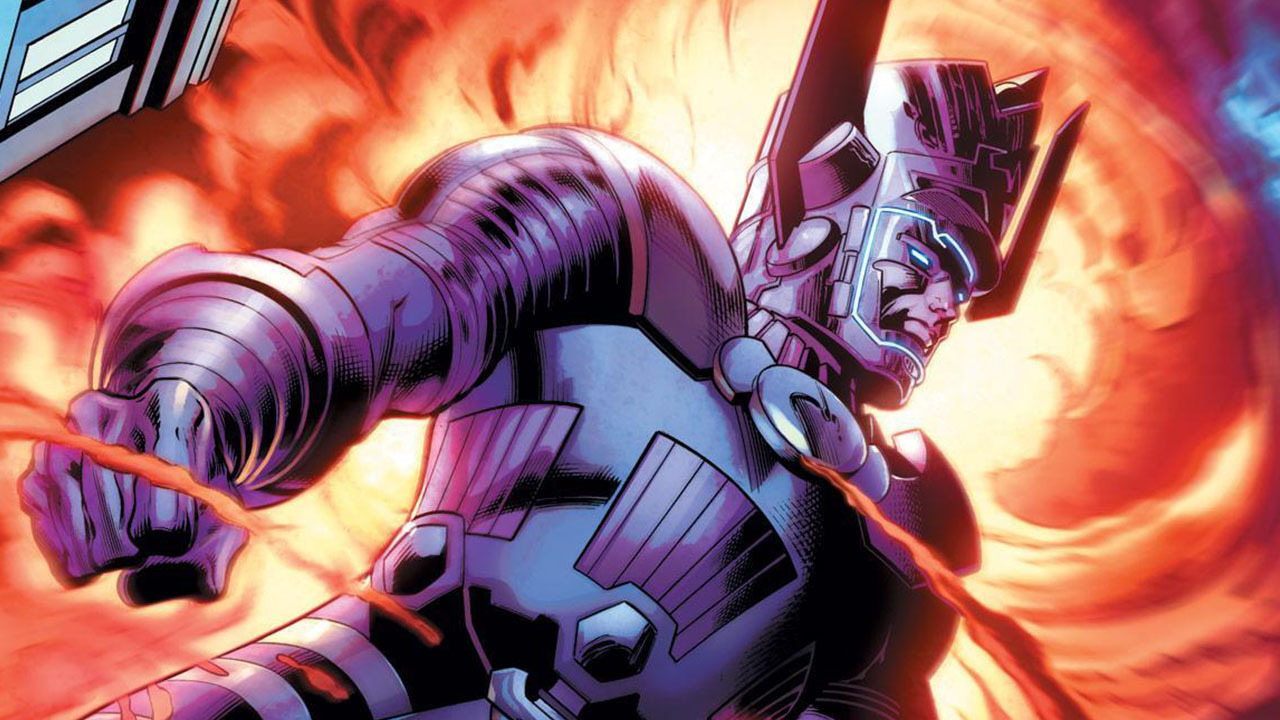Interview: Easy A's Stanley Tucci
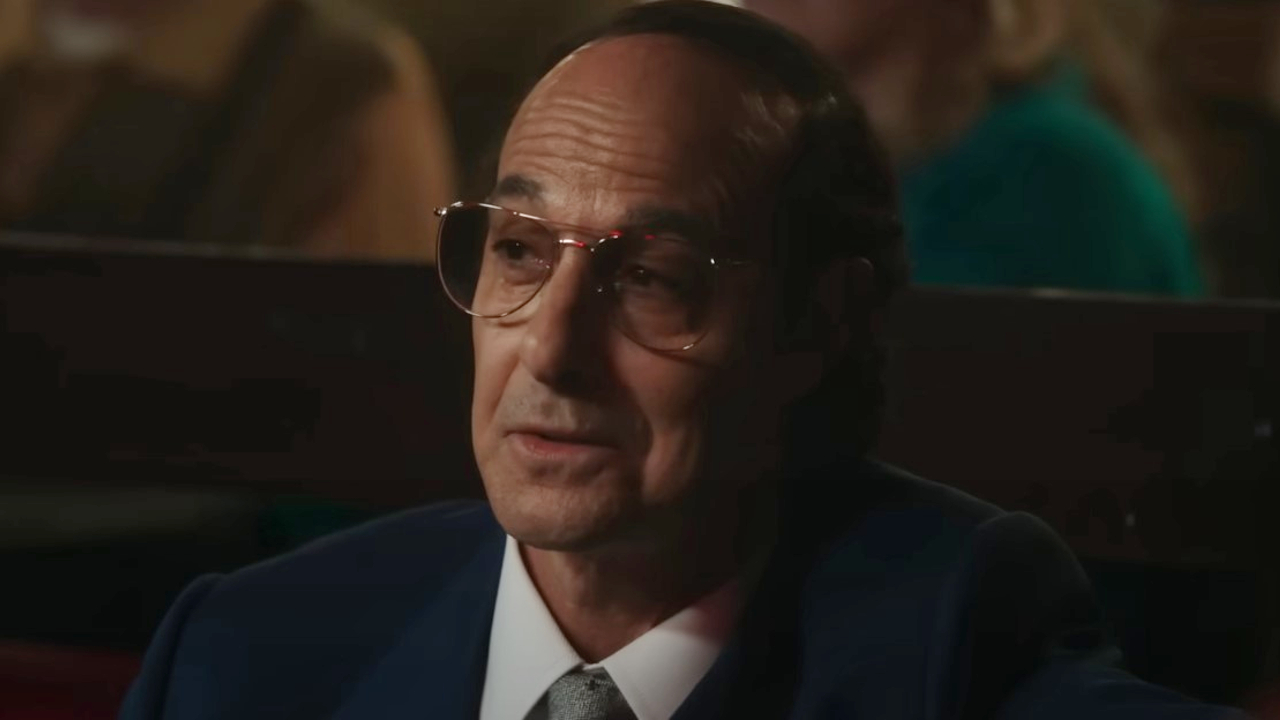
Being a 23 year old male, I was probably never the target demographic for Will Gluck’s Easy A. From the outside, it looks like your typical female-led high school comedy, a sub-genre that, with few exceptions, is not filled with the most esteemed films. The truth is that Easy A is actually quite entertaining and, at times, hilarious, and though his role in the film is small, Stanley Tucci plays a big part of that.
Playing Emma Stone’s dad and pairing up long-time friend Patricia Clarkson, Tucci plays a role that we don’t typically see. He’s not the overbearing zealot who makes his daughter’s life miserable and he’s not the laid back hippy who lets his daughter do whatever she wants. He’s (gasp!) a normal dad with an amicable relationship with his children. But be sure to not confuse “normal” with “boring” because he provides some of the film’s greatest moments.
Getting a chance to sit down with the actor, he talked about how his character relates to his own life with his family, what it was like working with the director, and his somewhat embarrassing failings with technology.
So Will was just talking these half-an-hour takes, and in some cases...
First of all, Will is a pathological liar. Except for when he talks about all the good stuff about me.
He didn’t say anything about you.
He didn’t? Well, it’s been nice talking to you. Yeah, we did have these long takes. And he’s great that way, because I love to work that way and it was so much fun. And he’s right there, very connected to what you’re doing and he’s not sitting back at the monitors eating a sandwich.
CINEMABLEND NEWSLETTER
Your Daily Blend of Entertainment News
And the result feels so genuine on screen.
I’m glad. He’s a wonderful director. Wonderful.
You have a great relationship with Patricia Clarkson on-screen, you guys have a good relationship off-screen as well, did you guys mutually decide that you were interested in this movie?
Separately, but we have the same agent. So when he told me, he said they had also have offered Patty the role of the wife, and I called her, after I read it, and I said, “Read this right away. We have to do this movie.” And we did. She’s great.
What was it about the script that immediately struck you that this is a must?
It was so funny and so smart and I had never read anything like it. Not that I hadn’t done a teen movie or something, but it was just so smart.
Parables aren’t always as fleshed out as this. Was it surprising to you that this was as meaty as it was?
There’s not that much there, really. The great thing was they weren’t trying to explain anything. Suddenly you cut to a scene with these characters and there just behaving as though everyone knows them and it worked. Doesn’t always work, but it worked. It’s because of the very naturalistic aspect of it and also humor. Everything is told through their humor, which you believe.
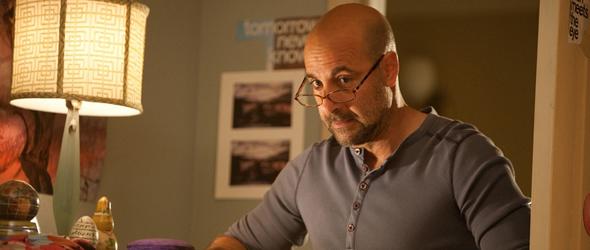
Well, wouldn’t you say there are explaining something, because this mother and father, the way they act and the way they care about each other, it explains…
Right, well what I’m saying is no exposition as far which usually there’s this build up to.
It explains Emma’s character.
Absolutely, how she becomes who she is, exactly.
Do you think that especially because you’re only in a handful of scenes having that relationship with Patricia helped you guys?
Without question because then we could also improvise very easily together. And if you have someone who maybe isn’t comfortable improvising or you don’t know each other very well, but Patty and I know each other so well that we can play off one another. People think that we’re a married couple sometimes.
And bringing Emma into that relationship, did you guys do anything special to try and bond with her?
No, you don’t have to do anything to bond with Emma, because she’s bondable. She’s so easily bondable. She’s just right there, she’s just very present. She has an incredible sense of humor, sophisticated, cheap sense of humor, just like me and Patty. So it was easy.
The whole film reminded me of Hollywood, if you do something wrong they castigate you and ostracize you, can you comment on that?
I agree. Hollywood is a little like high school.
Was it something you thought of when you read the script?
No, not really. But everybody remembers being in high school and being uncomfortable about being in high school, and this was just a very funny expression of that.
Will was just talking about working with Justin Timberlake and his transition from pop star to actor. You just finished Burlesque, right? Christina Aguilera, what was that experience like for you?
It was great, she was wonderful, but she never made a movie before. There were certain things that she just didn’t know, just technical things that she didn’t know. But, you know, you learn them pretty quickly, and God knows she’s a performer. I’ve never seen anything like that. Staggering, her singing and dancing. She’s this sweet little…she’s this big [places flat hand about three feet above the floor]. It was weird. They were like, “There’s Christina Aguilera,” I was like, “Where? That child?” She’s very sweet, very quiet and then she starts to sing and dance and you’re like, “Where the fuck did that come from?” I’ve never seen anything like it. I’ve never seen a transformation like that. It talked about it with Cher. How does she do that? Cher goes, “I don’t know. I don’t know how she does that.”
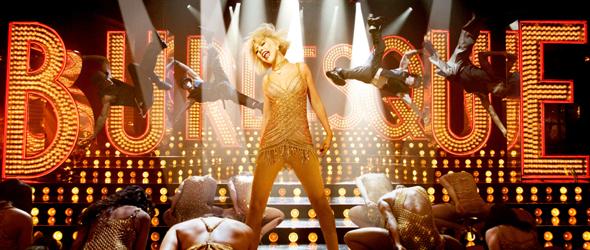
And how was working with Cher?
So much fun.
Was that the main reason to sign on?
Yeah, kind of, yeah. It was, I love her. She hasn’t made a movie in ten years.
So was everything and how did it come together?
Oh my God, it was so much fun. It was great, she’s one of the funniest people I’ve ever met. I mean, I always knew she was funny, like she had a great sense of humor, but she’s really funny. Very funny.
And stories to tell, I suppose.
Lots of stories to tell, yes. Lots of stories to tell.
Is Christina a good actress? What’s her role exactly in the film?
She plays a small town girl who really wants to sing and dance and she comes to L.A. and she finds this burlesque house and ends up working there as a waitress and then, eventually, everyone realizes how talented she is and she kind of saves the day. It’s good. She’s sweet.
How much improv was there and how much did you bring to your character?
There was a lot of improv. We did what was there, in the scripts, but then, what Will was saying with the takes, and then we’d just start making stuff up. And go in the script, out of the script, in and out. So he had a variety of stuff in the editing room. And, as I said, with Patty it’s easy, the two of us can start talking and never stop. When you say action, we’ll just start talking, and then when you say stop we’ll stop. If you don’t say stop we won’t stop. Even if you say stop we might not stop.
The whole interaction with your adopted son was great.
So absurd. It is exactly the way I deal with my children, though, and I’m not kidding. It really is. Saying to my kids, “Where are you from originally?” I do say that to them. That’s why I said it to the kid. I used to do it to my wife all the time. She’d be talking about something very serious and I’d just look at her and go, “Where are you from originally?” She’d be talking about some political cause or something.
Is that the danger of comedy? You never quite know if it will work until you see it?
Yeah, it’s up to Will. It’s up to him in the editing room. But you just do what you think is right at the time and feel it out. And sometimes, look, let’s face it, sometimes things that are funny to you on-set, the crew is laughing, everybody’s laughing, and then you get in the editing room and it’s like, that’s not that funny. We all thought it was funny. It’s like I said to the actors, I just directed this Broadway show this Spring that just closed, once we opened I sat down with everybody, it was a farce, so I said, “Look, here’s the thing. As we know, as this play goes on, as this production goes on, what’s going to happen is you’re going to start to get bored and you’re going to start to invent things to occupy yourselves. But you have to remember why you’re here. Who are you entertaining? Are you entertaining yourself, are you entertaining each other, or are you entertaining the audience? So every time you think it’s the first two, you’re wrong.” Because, inevitably, you do you get bored. “Let’s see if I can make him laugh in this scene. Let’s see if I can get him to smile when I say that line. Or I’m really bored, let me try this.” But, really, it has to be about the audience. The same in a film. You sit there and entertain yourselves on the set as much as you want, but, in the end, it’s just like a masturbatory exercise.
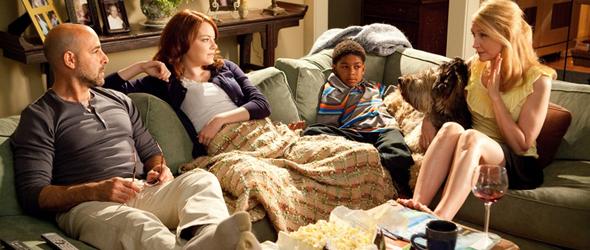
Technology plays a pretty important part in this film. Are you very technology oriented?
So not. I’m so not, it’s really bad. I know how to use the computer in a very simple way. I only recently, this is pathetic, I only recently realized that you could have one window open and then open another window. I swear to God. Like six months ago. “Oh, that’s how people do that.” Of course I would never ask anyone. I would never read the instructions. I have a Blackberry and I have an iPhone, but I’m kind of too afraid to use the iPhone. So it just sort of sits there a lot of the time. And then, if I can’t get it to work I [fumbles with imaginary phone] whatever.
Texting?
I do text. I text on the Blackberry. I text, I email and I Skype my kids when I’m away. And I’m always so proud when I downloaded something. My poor assistant, it’s pathetic. It’s pathetic.
When you’re taking half-hour shots, as you did on this film, are you ever surprised by what you end up seeing on screen and what hit the cutting room floor?
Yeah, you always are. That’s why I wanted to make my own movies. In the end, it’s the director’s movie. He has to do whatever he thinks is best. What Will did here is great.
Is there anything specifically you can think of that got cut that you would have liked to see in the final product?
No, I think just about everything we did was in there. Well, not everything, pieces of everything, because we had so few scenes. I only have, like, three scenes in the movie.
You seem so fearless in all of the roles you take on. What’s the biggest fear you have in your life?
Not working. Regarding show business?
Anything?
Oh, my kids. Something happening to my kids, that’s my biggest fear. And after that’s not working. There’s a big leap there, a big gap.
You’ve been on sort of a role lately.
I know, I know. It’ll end. Now I know that this is the way it goes. It’s fine. Now it’s great, in two years people will go like, “Eh, we don’t want him. We’re tired of him.” It happens and I’m prepared for it. I hope it doesn’t.
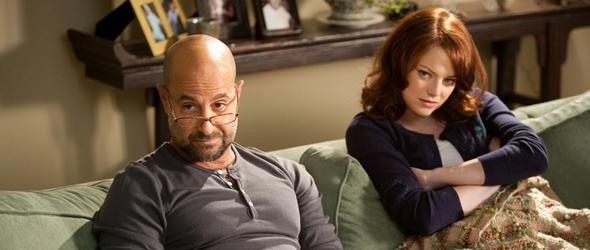
Do you have plans to direct again soon?
Yes, I have a number of movies I want to do and one we’re in development with Sony to do a movie called Mommy and Me that I’ll direct with Tina Fey and Meryl Streep. So we’re talking to writers this week and hopefully we’ll have a script by Christmas or something like that. Because we want to do it next summer.
What is it about?
I can’t tell you anything about it, really, because I don’t know anything about it because there’s no script.
Since you’ve worked with Meryl as a co-star, directing her must be an exciting prospect.
I can’t wait to do it. I can’t wait to do it. I can’t wait to torture her.
Do you really have to direct Meryl?
No, I don’t have to direct her. She doesn’t need direction. You could just say, “Do it a different way now.” And then she’ll do that. “Okay, try one a different way.” Okay, yeah. What are you going to tell her? What are you going to tell her? “Just move your head a little because the lights in your…” What are you going to say?
You go from The Lovely Bones, to this, to Burlesque, a lot of young performers. Is there something that all young performers that all young performers that have promise have? Is there something that you can recognize?
Well, there’s a number of things. They have a very strong sense of self and they are very self-assured, but not arrogant. They have a natural ability to be truthful, but they also have a technique that most people only acquire after years of being in show business. Emily Blunt is the same way. When I met Emily she was probably 23 or something like that. I could not believe she was 23 years old. She became one of my dearest friends and I’m old enough to be her father. And yet I could not believe that this person was 23 years old, she was so mature. So funny, so well read, so bright, so secure with herself. Emma’s the same way. Saoirse Ronan, who is 16 now? Unbelievable. But they’re very wise. They were born wise. That old soul. Saoirse has it, Em has it, Emma has it. It’s great.
The Emmys are tonight, are there any shows that you are rooting for?
Not really, I don’t watch that much TV, I’ll be honest with you. But I hope they all win.
Would you ever want to direct some TV?
I’ve been asked to direct stuff on TV, but not really. Steve Buscemi, who’s my business partner and my friend, he directs a lot of TV. He’s really, really good at it too. I’m kind of too nervous to do it.
He has a new show, Boardwalk Empire.
I know, I’m excited to see it. That I want to see.
You see so many actors today moving to TV, whether it’s HBO or AMC. Is that just a grown reality of the business?
It is and it’s great. Personally I think it’s fantastic, it didn’t use to be that way. When I first started in this business you were a theater actor, you were a TV actor, or you were a movie actor. And now, finally, in the last, probably, seven years or so, it’s really started to change. HBO changed that. HBO changed that and a lot of things, but that is a huge gift to show business because it raises the quality of everything and the stigma of being a TV actor has disappeared. The stigma of being just a theater actor has disappeared. It’s all mixed up. And that’s the way it always was in England. In England, Ian Holm would do a Shakespearean play on stage, he would go do a TV show, episodes of TV shows, and then he would go do a movie. And Helen Mirren, same thing. It was just, “I’m doing this because this is interesting and I also have to make some money. And then I’m going to do a play where I’m not going to make money. And then I’m going to do a movie where I might not make some money, but maybe I will make some money.” That’s the way it is. It’s so much healthier now. It’s great. You can go do a TV series, have a good time. Most are better written than some movies.
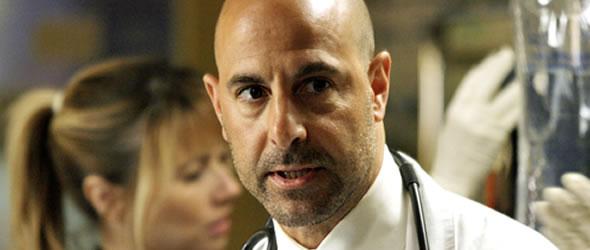
As an actor you’ve done a multi-episode arc.
A number of them, yeah.
Are you working different muscles when you do that type of thing?
Not necessarily, only in the sense that TV shoots pretty quickly. And if you’re doing something like ER, you have to memorize medical terms, which is almost impossible. This is why, a lot of times, lines are written on the patient’s neck. Or wherever.
Really?
Well, yeah. You can’t remember it. How are you supposed to remember it? You’re not a doctor. The guy who was the consultant on it, he said, “Look, you go to medical school, it’s like you’re learning a completely different language.” He said, “We have so many words in our vocabulary and then there’s this whole other vocabulary that’s just medical.” So you have to learn a whole new language. So you’re learning thousands of words that are just another language. So when you’re acting that, you’re given these words and you’re like, “What the fuck is that? That’s not a word that I know.” It’s a different language. And then to try to remember it and to try and make it make sense, and be real is close to impossible. That was the one thing for me that was really, really hard I have to say. Because it’s not emotionally connected too. It’s completely technical, there’s no emotional connection to “intubate.” There’s nothing to “hemangiopericytoma.” There’s no connection to that. Which is a kind of brain tumor, just in case you wanted to know. So you are working different muscles, and you’re working very quickly, but also in independent films you’re working very quickly too. But I love doing those. I love doing ER and doing those arcs. They are very fun.
So beside Burlesque and directing Meryl Streep what else do you have coming up?
There’s a movie I did called Margin Call with Paul Bettany and Kevin Spacey and Demi Moore, and I don’t know when that’s coming out, that will be out next year. It’s a very independent, very interesting movie about the collapse of a financial institution. And then I’m doing, I’m in the middle of shooting Captain America, which always sounds funny when you say it. And I always love when people go, “Are you playing Captain America?” What do you think? So I’m doing that right now in London.
How big is your role in Captain America? You’re playing the doctor who gives Cap his powers.
Dr. Erskine, yeah. It’s about six scenes, maybe. Something like that. Really well written script, really well written.
Do you have a nineteen picture deal with Marvel like everybody else?
No, no. There’s a thing you sign if you do a sequel you’re salary’s kind of already negotiated. Which is very smart of them to do. But no I don’t, no. I’d like to.

Eric Eisenberg is the Assistant Managing Editor at CinemaBlend. After graduating Boston University and earning a bachelor’s degree in journalism, he took a part-time job as a staff writer for CinemaBlend, and after six months was offered the opportunity to move to Los Angeles and take on a newly created West Coast Editor position. Over a decade later, he's continuing to advance his interests and expertise. In addition to conducting filmmaker interviews and contributing to the news and feature content of the site, Eric also oversees the Movie Reviews section, writes the the weekend box office report (published Sundays), and is the site's resident Stephen King expert. He has two King-related columns.
